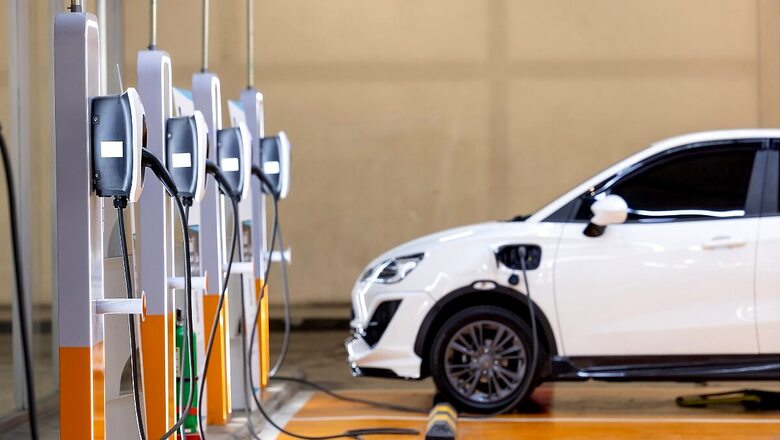
views
The Principal Scientific Adviser to the Government of India, Professor Ajay Kumar Sood, has launched the “e-mobility R&D Roadmap for India,” a comprehensive strategy to drive the nation towards its net-zero targets. The roadmap is expected to propel the country into a future of self-reliance in the electric vehicle (EV) sector with an investment of Rs 1,151 crore over the next five years.
Prof Sood underscored the importance of aligning the growth trajectory of India’s automotive sector with the country’s Net-Zero vision. He emphasised the need for a culture of R&D and innovation-driven growth to achieve self-reliance in the sector. Dr Preeti Banzal, Adviser, Office of PSA, and Prof Karthick Athmanathan, PSA Fellow and Professor of Practice at IIT Madras, provided insights into the roadmap’s strategic initiatives and the importance of reducing import dependency. Overall, the roadmap’s launch marks a significant step towards establishing India as a global leader in the electric mobility sector, setting the stage for a sustainable and self-reliant future.
Here are the key aspects of the roadmap:
1. Investment and Strategic Goals
• A dedicated investment of Rs 1,151 crore over five years.
• Aims to achieve a 45 per cent reduction in emission intensity by 2030.
• Targets energy independence by 2047, with a commitment to net-zero emissions by 2070.
• Reducing India’s dependence on imports within the e-mobility value chain and the requirement of strengthening domestic R&D capabilities in the automotive sector.
• The roadmap aims to mitigate India’s heavy reliance on imports for the e-mobility value chain.
• Emphasises strengthening domestic R&D capabilities and fostering innovation within the automotive sector.
2. Focus Areas
• Energy Storage Cells: Development of advanced battery technologies.
• EV Aggregates: Enhancement of electric vehicle components and systems.
• Materials and Recycling: Promotion of sustainable materials and circular economy practices.
• Charging and Refueling: Establishment of robust infrastructure for EVs.
3. Research Priorities
• Identification of projects based on potential impact on national energy independence, market dominance, and feasibility. Including the identification of research projects in the area of hydrogen.
• Projects are categorised according to technology readiness levels (TRL), with strategic involvement of government, research institutions and industry partners at different stages.
4. Global Leadership
• The roadmap aims to position India to lead in global value and supply chains.
• Focuses on filling critical gaps in the current research and development framework to establish a strong foundation for future innovations.
5. Funding and Support
• Multiple government departments and ministries will be approached for funding.
• There is also a need for all the higher-risk phases to be funded publicly with suitable provisions for IPR- and the Industry support is initially limited to non-fiscal and non-management obligations. Once there is success demonstrated in lab scale, industry engagement in terms of investments as well as project management/ lead are to be ramped up from PoC to Pilot to Industrialisation- the last phase being the largest investment and entirely funded by Industry.



















Comments
0 comment